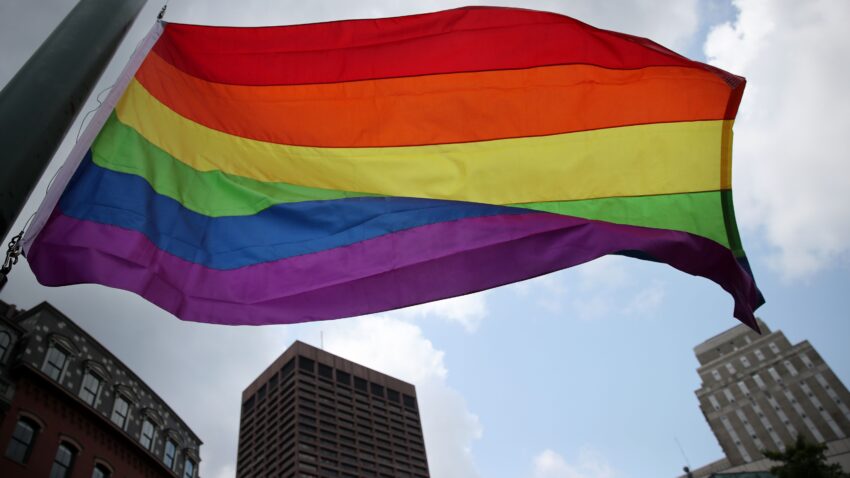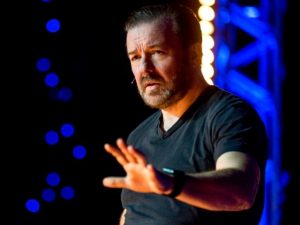With everyone shuttered inside their homes, the world today looks vastly different than it has at any other point in modern history, and Jesse Begenyi said many in the LGBTQ+ community are surviving quarantine one day at a time, through small acts of resistance.
“A small act of resistance, the way I think about it, are little ways that we can sort of say F-you to a situation if it doesn’t feel like a good situation,” said Begenyi, an individual and group therapist at the Boston Alliance of LGBTQ+ Youth. “But you obviously want them to be safe. So it’s thinking about risk, mitigating risk, but also thinking of ways that you can feel a little bit of your own personal power.”
They said this could be a transgender person finding autonomy in an abusive or unsupportive environment when no one is looking.
“It could be at 3 a.m. when everyone’s asleep, getting into the most fabulous clothes possible that your parents hate and strutting around the living room,” Begenyi said. “Just like little ways to kind of take back your power.”
Begenyi said for many, the pandemic has brought a resurgence of the vibrant online queer community, but for others, it’s left them quarantined and on alert in unwelcoming, non-affirming, or unsafe environments.
“Far too often, LGBTQ+ folks experience higher levels of discrimination and marginalization than people outside of the community,” Begenyi said. “When there is a group of people who is already marginalized, events like this pandemic tend to strike harder than they do on communities that don’t face oppression.”
Josalin Scott, a tele-mental health licensed psychotherapist serving Georgia and Massachusetts, said one of the biggest impacts this pandemic will leave on LGBTQ+ folks will be an increased risk of stress, depression, or suicide.
“And that’s what I’ve seen,” she said. “Because people are not able to connect with others, or because of where they live, they don’t have those certain resources in their community.”
Scott said being confined to environments that may be abusive or unsupportive of someone’s sexual orientation and/or gender identity can also take a toll on their mental health.
But Begenyi said with these challenges, they’ve seen a rise of online communal support.
“I think that queer communities already have created ways to hold each other, and be there for each other. And a lot of people think of queer community as being home,” Begenyi said. So “regardless of who you live with, and if it’s unsafe or if it feels unsafe, at least you do have that larger queer community to rely on.”
Begenyi said these unique pockets of queer community and identity, like digital drag shows and virtual therapy that some may not have had access to before, have been showing up since the start of the pandemic.
“It’s cool, actually, because if you are not feeling great or you don’t have the money for the train, or you have a big project and you only have an hour, now you can work within your limitations to just get into the BAGLY zoom meeting and participate,” they said. “So in some ways it makes it more accessible because people from across the state can get involved.”
We’re offering our Tea Time online now! Our one-on-one therapy sessions have been moved to the digital world, and are open to LGBTQ+ youth ages 25 and under. If you’re interested in a session, visit https://t.co/8ZHsb9qFqg.
Note: new clients will fill out an intake form first! pic.twitter.com/ZSBOC0xpT6— BAGLY (@BAGLYinc) March 25, 2020
One key to supporting each other in the pandemic, Begenyi said, is realizing that social distancing really means physical distancing, not emotional distancing. Digital drag is one way many have maintained connection.
“You have all of these drag queens, performing and showing their art online, in spaces that everyone can access because we can’t go to a bar and see a performer,” Begenyi said. “And you see people who are doing a lip-sync in their kitchen or living room … It’s very tender, in a way.”
Begenyi said one actress, Biqtch Puddin’, performs every Friday night, live streaming the show from Twitch and Instagram and hosting queens from Boston to Australia, to the U.K. and other parts of America.
MΛᄃΉ 5 💨
Join us Friday at 7pm PDT/10pm EDT at https://t.co/5Tg5ioZPD7 for the 5th #DIGITALDRAGSHOW!
Starring 🌟 @djmateosegade, @CrystalMethyd, @LANDONCIDER, @chadmichaelsallstar, @FloridaManly, @PrissyChambers, @vandervonodd, @dollyablack , @fatdragmeatball & MØRE! 😱🥳 pic.twitter.com/3uhDjmWPkw— Biqtch Puddin’ (@BiqtchPuddin) April 13, 2020
“They jump to other performers so you get to see all of these people who are all being impacted by the pandemic coming together for a show,” Begenyi said. “It’s a very neat thing to be witnessing.”
People have also organized digital roller discos and queer dance parties over Zoom, Begenyi said, noting how this communal support feels reminiscent of when they were first welcomed into the queer community.
“When I came out as queer, a lot of my queer community was online,” they said. “A lot of the people I met were other queer people in different online spaces who weren’t actually in my city. And so now, it’s sort of like a throwback to that in a way, where queer community is now back online.”
Begenyi said they hope the virtual projects community members have created will continue to shift to meet people’s needs even after the pandemic has passed. But for now, they said the most important thing is for community members to recognize that not everyone is feeling the same digital support.
“We need to recognize that other people in our community, even if we’re doing OK, might be having a harder time, and think about … how can we share resources, how can we share information, what can we do to support each other,” Begenyi said. “I think those questions are really huge and it’s important to always be thinking about the most vulnerable parts of our population, the most vulnerable parts of our communities.”
Josalin Scott said the number one thing to do right now is reach out.
“This is a time where if you have friends who might be local, but you can’t see each other, or they’re not quarantined with their partners, then it’s also a good time to reach out to them,” the psychotherapist said. “Do a lot of texting and face timing, and just staying connected, where you can’t be connected physically.”
She said another way to take care of yourself is finding your own quiet space within your home, or connecting with others through online spaces, like the Facebook group Stand-In Families International or virtual meetups.
Currently, Scott said she has clients who are still learning to accept their own sexuality and are now forced to stay with family members who haven’t quite come around to accepting them.
Begenyi said staying with these unsupportive family members means people may not be able to talk openly about being queer, or present their gender expression in the way they want.
“Unsupportive family members can make it more difficult if there are certain things that you’re not allowed to wear that make you feel more affirmed in your gender, or if you’re not able to attend a gender affirming appointment with a therapist or if it makes it very challenging, because you have family around, to talk with other friends who do understand your identity,” they said.
And being stuck in this kind of situation can lead to gender dysphoria, Begenyi noted.
“Gender dysphoria is something that just is, and it’s pervasive for people and it’s not like it goes away or comes back necessarily in very clear cut, black-and-white ways,” they said. “I think that dysphoria can get worse when you’re not able to live in your truth.”
Scott emphasized the importance of setting ground rules and communicating challenges or concerns when it’s safe to do so.
“Realizing that, for right now, we are all in this together makes a big difference,” she said.
But what’s most important, Scott said, is just to have people make it through this pandemic in one piece. “That’s the biggest thing, coping with having to be in a situation that’s not ideal.”
Begenyi said despite living in uncertainty, they’re hopeful family members will use this time to support each other, no matter their identities or gender expressions.
“I am hopeful that during this difficult time where the world is on pause, working to protect our most vulnerable populations from COVID-19, people are re-thinking what family looks like,” Begenyi said. “I’m hopeful that family members are coming together over this shared struggle and period of uncertainty, regardless of family members’ identities. I am hopeful that queer community will [be] continuing to thrive in online spaces, and that queer folks will be present to support each other during these tough times.”
LGBTQ+ Community Resources
Below are some resources therapists Josalin Scott and Jesse Begenyi recommended for those in the queer community who are seeking help dealing with the COVID-19 crisis.
Get Boston.com’s e-mail alerts:
Sign up and receive coronavirus news and breaking updates, from our newsroom to your inbox.



















